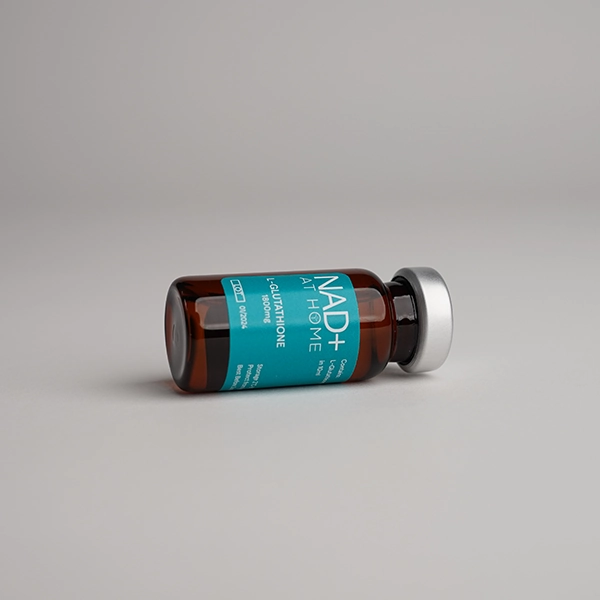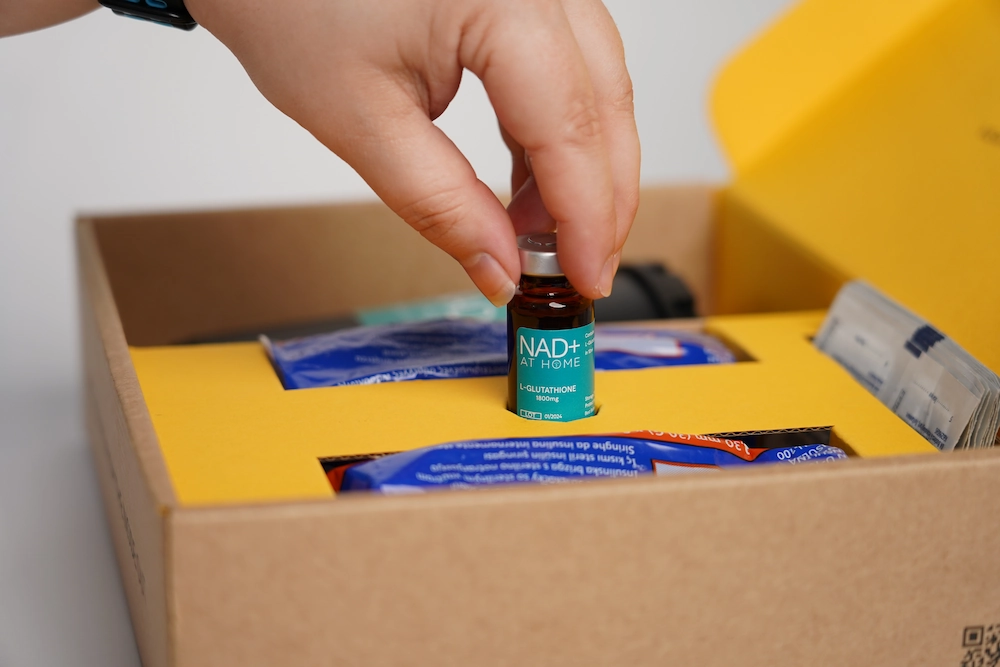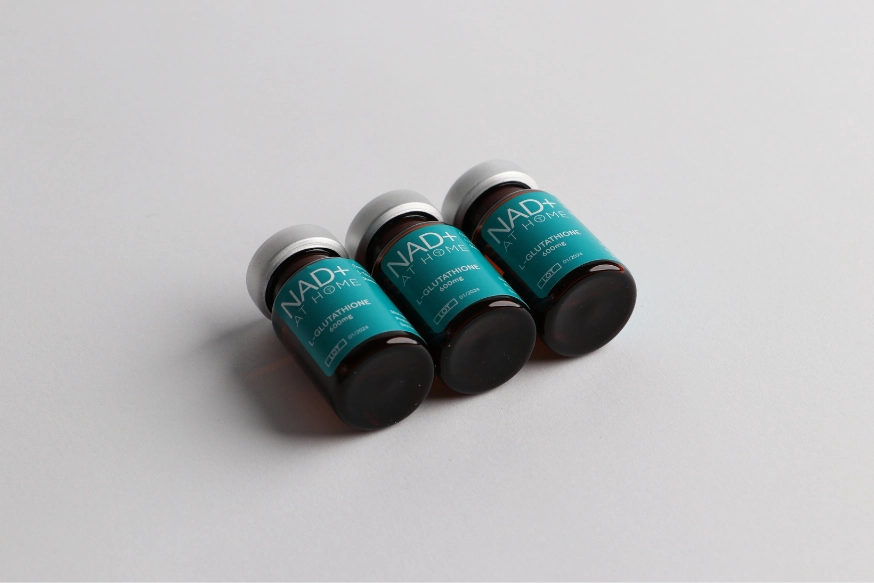When it comes to antioxidant supplements, glutathione often tops the list. And for good reason. It’s one of the most powerful tools your body uses in its natural defence system. However, if you’ve tried to buy it, it’s likely that you’ve come across two forms: L-glutathione and liposomal glutathione.
Both deliver the same core molecule, but they aren’t the same when it comes to absorption, delivery method and overall effectiveness. In this article, we’ll be looking at the difference between glutathione types and which one might be better suited to your goals – especially if you’re looking for the ideal supplement to support your current NAD+ supplements.
What is Glutathione?
Glutathione is a naturally occurring antioxidant that is found in every cell of the body. Often called the body’s master antioxidant, it plays an important role in:
- – Cellular health: helping to protect cells from free radical damage
- – Detoxification: supporting liver function and toxin removal
- – Immune function: regulating immune system responses and reducing inflammation
- – Oxidative stress reduction: neutralising harmful reactive oxygen species
Glutathione is made from three amino acids, which makes it a tripeptide. The body produces the three amino acids – glutamine, cysteine and glycine – naturally, but this production can decline with age, stress, poor diet and chronic illness.
When glutathione levels do drop, your cells are more vulnerable to damage, which is why supplementation is essential for maintaining optimal health and wellness.
What is L-Glutathione?
L-glutathione is the biologically active form of glutathione and is something that your body naturally uses. It’s most commonly sold as tablets, capsules or powders in oral supplements. It too is a tripeptide and contains:
- – Glutamine: which supports muscle health and immune function
- – Cysteine: which provides the sulphur groups essential for detoxification
- – Glycine: which plays an important role in collagen metabolism and neurotransmission
The benefits are clear, but it does come with a catch. When you take L-glutathione orally, a lot of it gets broken down by enzymes in the digestive tract before it reaches your bloodstream. This means the amount that actually gets into your cells can vary, which is where you need it the most.
That’s not to say that L-glutathione is pointless. Many people still experience a mild antioxidant support, especially if taken consistently and at higher doses. But for those with targeted needs, absorption may be limited.
What is Liposomal Glutathione?
Liposomal glutathione is the same as the L-glutathione molecule, but it is delivered in a more advanced way. In this instance, glutathione is encapsulated inside microscopic fat-like spheres called liposomes.
These liposomes act as a protective barrier and shield the glutathione from stomach acid and digestive enzymes. This means that when they pass through the digestive tract, they fuse with cell membranes made of similar fats and then release glutathione directly into the cells.
The best thing about liposomal delivery is that:
- – Absorption is boosted
- – Cellular delivery is improved
- – Effects are more consistent (as higher bioavailability means you might notice results faster)
- – The required dose is lower (as more glutathione is reaching your cells)
Liposomal glutathione often comes as a soft get or liquid and as a result of the manufacturing process typically being more complex, it usually costs more compared to standard L-glutathione supplements.
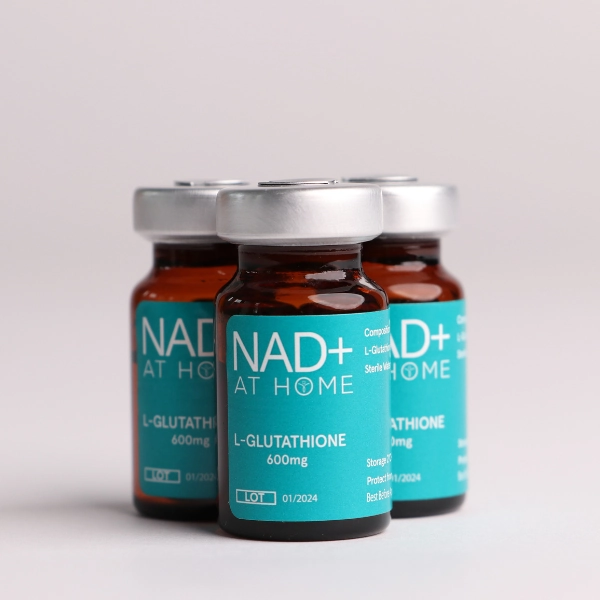
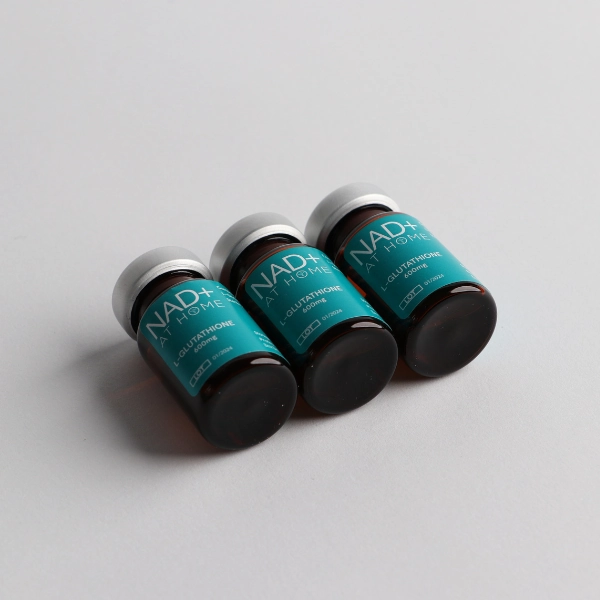
L-Glutathione vs Liposomal Glutathione
Wondering ‘is liposomal glutathione better?’ While the core molecule is identical, there are a few differences to be aware of:
Absorption
L-glutathione experiences a level of breakdown before reaching your cells meaning absorption can be low when taken orally. Liposomal glutathione has a much higher absorption due to lipid encapsulation.
Delivery
L-glutathione traditionally comes in capsule, tablet or powder form whereas liposomal glutathione comes in a lipid-protected soft gel or liquid form.
Effectiveness
L-glutathione is said to offer many benefits but can be less predictable as it can’t be confirmed how much you are ingesting. Liposomal glutathione is more potent and therefore has more consistent results.
Cost
For a more affordable option, L-glutathione is the best option. This is because liposomal glutathione has an advanced formulation and is therefore more expensive. Put simply, while the two contain the same active antioxidant, liposomal technology changes how efficiently it gets into your system.
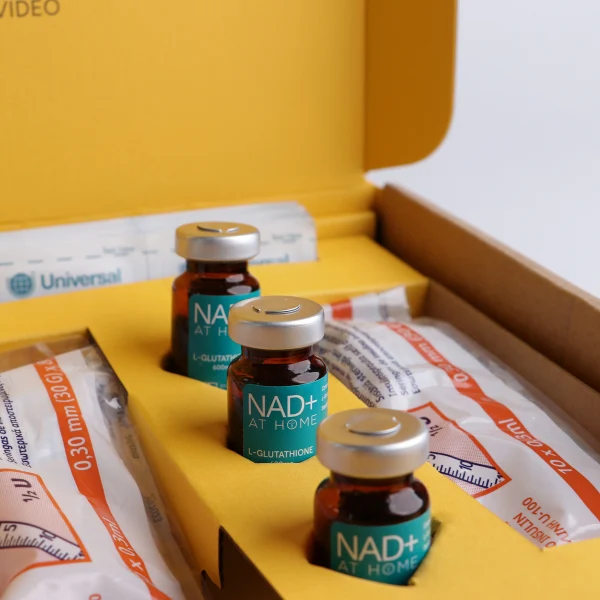
Which One Should You Take?
This depends on your health, goals, budget and current needs.
Liposomal glutathione is best if:
- – You need quick and high-level antioxidant support
- – You’re experiencing chronic fatigue, toxin exposure or high oxidative stress
- – You’re undergoing NAD+ therapy and want to boost cellular recovery
- – You want better results with a smaller dose
Alternatively, L-glutathione is best if:
- – You’re seeking general antioxidant support
- – You have good overall heal,th but want maintenance-level benefits
- – You’re looking for a more affordable option long-term
Whatever option you choose, research is key. It’s also important to invest in supplements from reputable manufacturers that prioritise purity and potency.
Dosage will be individual to your needs, but speaking to a healthcare professional can help you to decide and find the right balance.
How Glutathione Supports NAD+ Therapy
At NAD+ at Home, we often recommend glutathione as a supplement to NAD+ IV Therapy or at-home NAD+ protocols. This is because NAD+ therapy stimulates cellular repair, which can briefly increase the release of metabolic waste. Glutathione helps your liver and detox pathways to handle it efficiently.
NAD+ also boosts mitochondrial energy production but this can produce more reactive oxygen species. Glutathione neutralises these and further protects your cells from damage. Finally, glutathione allows your body to focus on repair and rejuvenation while NAD+ gets to work.
In fact, evidence shows that when taken before, during or after NAD+ treatment, glutathione can help you to feel clear, energised and resilient.
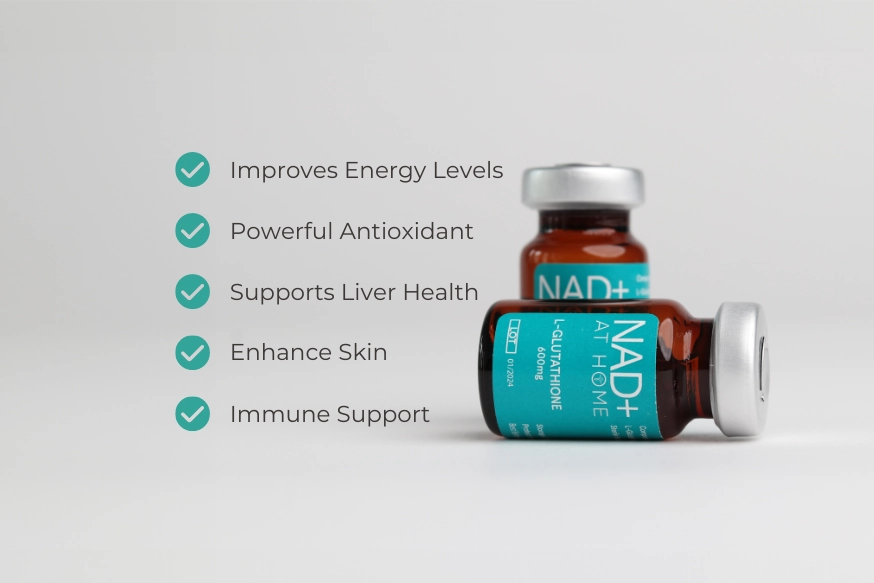
Know What You’re Getting
In fact, evidence shows that when taken before, during or after NAD+ treatment, glutathione can help you to feel clear, energised and resilient.
Both L-glutathione and liposomal glutathione deliver the same antioxidant, but liposomal technology offers a more efficient way to get it into your cells. If you’re seeking general health support, the former may be enough but for more intensive needs, especially if you’re pairing with NAD+, the latter is likely to be the better choice.
Ready to explore it for yourself? Check out our range to support your wellness journey.
